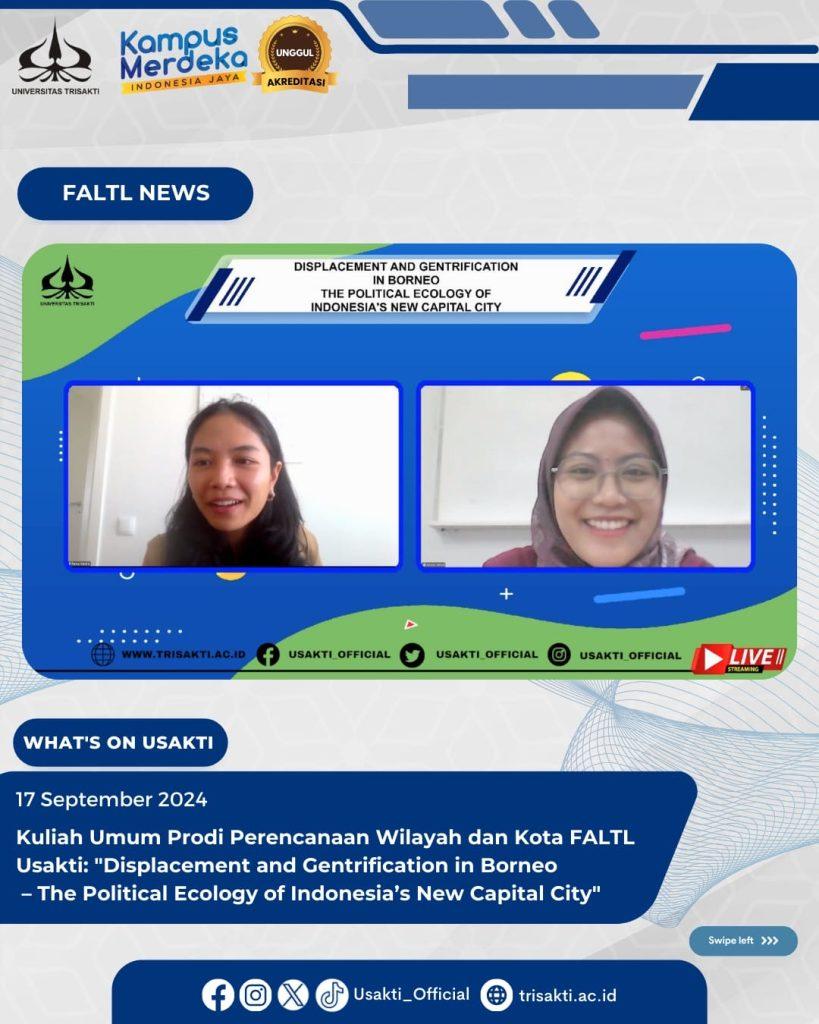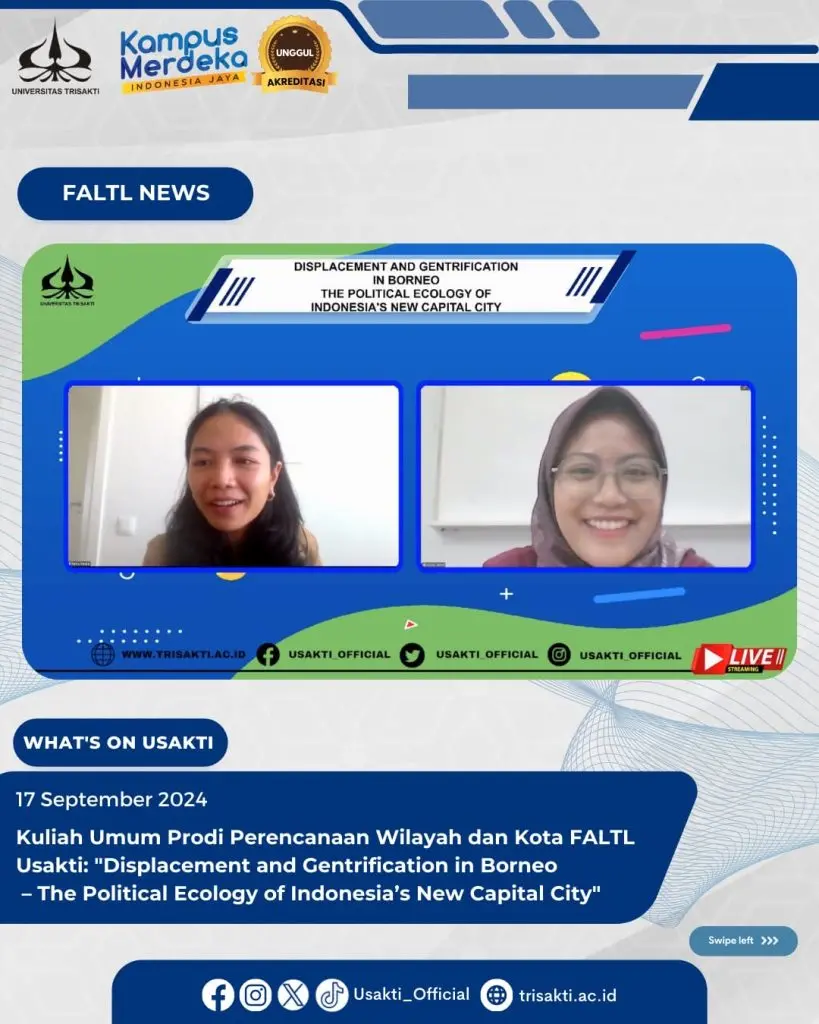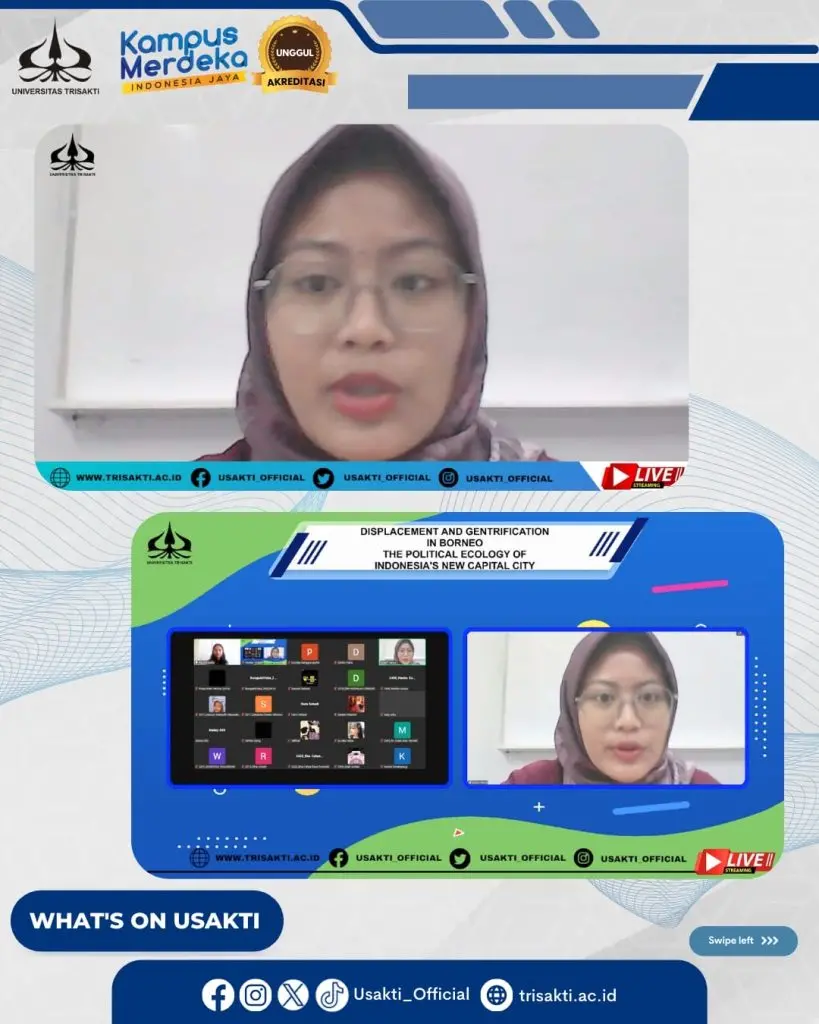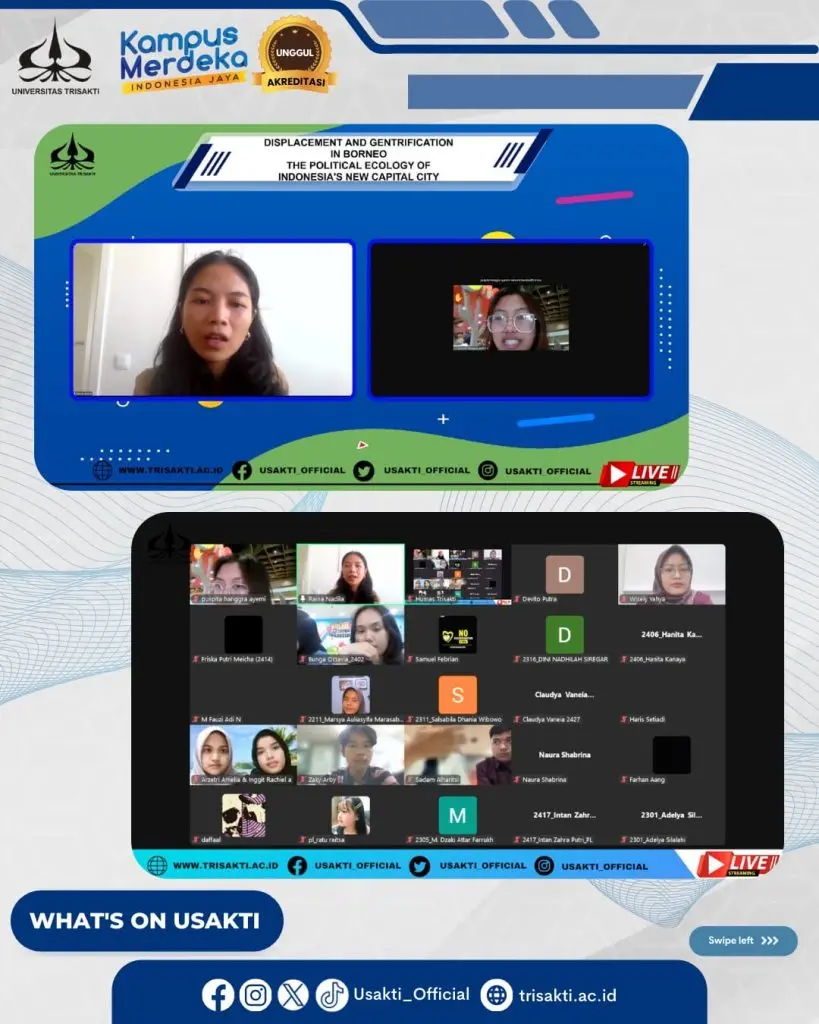Contact Us
- JL. Kyai Tapa No. 1 Grogol
- Jakarta Barat, Indonesia
- Phone:
- (62-21) 566 3232
- Whatsapp:
- (+62) 882 194 856 74
- (+62) 877 707 077 03
- Fax: (62-21) 564 4270
- Email: humas@trisakti.ac.id

Jakarta, September 17, 2024 – The Department of Urban and Regional Planning, Faculty of Landscape Architecture and Environmental Technology (FALTL), Universitas Trisakti, held a public lecture titled “Displacement and Gentrification in Borneo – The Political Ecology of Indonesia’s New Capital City.” The virtual event featured an expert in sustainable development and global health, sparking a lively discussion about the impact of relocating Indonesia’s capital to the Kalimantan region.
This public lecture’s theme is highly relevant, considering the planned capital relocation to East Kalimantan, which has become a major topic of discussion at both national and international levels. The relocation brings complex challenges, including the displacement of local populations and gentrification, which affects the social, economic, cultural, and environmental structures of the local communities.
During the lecture, the speaker delved into the political ecology surrounding the development of the new capital city (IKN) and explained how the displacement of local residents is a highly sensitive issue, especially for indigenous communities in Kalimantan who have long lived in and depended on the region’s natural resources. The speaker also highlighted the risks of gentrification, where social and economic changes driven by the influx of new residents could potentially lead to future social inequality.
Raina Nadila, S.Sos., M.Sc. (Master’s in Sustainable Development and Global Health, Uppsala University, Sweden), emphasized the importance of inclusive and sustainable policies.
“Relocating the capital is not just about infrastructure and buildings. It’s a major transformation in the social and environmental ecosystem. Local communities must be part of this process, not merely victims of development,” she stated.
The public lecture was attended by students and lecturers from FALTL, Universitas Trisakti. The event concluded with an interactive Q&A session, where participants actively asked questions about environmental management policies and social justice in the capital city’s development. The moderator, a lecturer from the Urban and Regional Planning Department, also stressed the importance of participatory planning in the development of the new capital.
Through this public lecture, it is hoped that students of Urban and Regional Planning, as well as all participants, will gain deeper insights into the challenges of urban planning within the context of building Indonesia’s new capital city and contribute to formulating fair and sustainable solutions.




